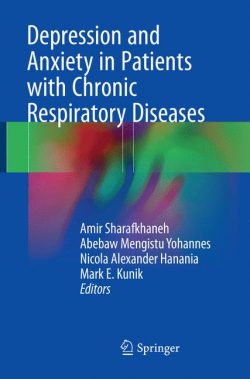This book is a study of religious ecstasy, and the ways that it has been suppressed in both the academic study of religion, and in much of the modern practice of religion. It examines the meanings of the term, how ecstatic experience is understood in a range of religions, and why the importance of religious and mystical ecstasy has declined in the modern West. June McDaniel examines how the search for ecstatic experience has migrated into such areas as war, terrorism, transgression, sexuality, drug use, and anti-institutional forms of spirituality. She argues that the loss of religious and mystical ecstasy, as both a religious goal and as a topic of academic study, has had wide-ranging negative effects. She also proposes that the field of religious studies must go beyond criminalizing, trivializing and pathologizing ecstatic and mystical experiences. Both religious studies and theology need to take these states seriously as important aspects of lived human experience.
Chapter 1: Introduction: What Happened to Ecstasy? Mysticism, Ecstasy and the Constructivist Loop
Chapter 2: Some Examples of Religious Ecstasy
Chapter 3: Attacks on Ecstasy, Pathologizing in Academia
Chapter 4: Attacks on Ecstasy, Theology: We Don’t Want It Either
Chapter 5: Destructive Ecstasies: Wargasm and the Joy of Violence
Chapter 6: The Spiritualized Ecstasies: Sex, Drugs and Rock and Roll
Chapter 7: Return of the Repressed: Millenial, Charismatic and Renewal Movements
Chapter 8: The Case of Hinduism: Ecstasy and Denial
Chapter 9: Ecstasy and Empathy: Some Venerable Elders and New Directions
Chapter 10: Conclusions: Can We Go Beyond Criminalizing, Pathologizing, and Trivializing? Or The Problems of Shooting Yourself in the Foot
June McDaniel is Professor of the History of Religions at the College of Charleston, USA.
This book is a study of religious ecstasy, and the ways that it has been suppressed in both the academic study of religion, and in much of the modern practice of religion. It examines the meanings of the term, how ecstatic experience is understood in a range of religions, and why the importance of religious and mystical ecstasy has declined in the modern West. June McDaniel examines how the search for ecstatic experience has migrated into such areas as war, terrorism, transgression, sexuality, drug use, and anti-institutional forms of spirituality. She argues that the loss of religious and mystical ecstasy, as both a religious goal and as a topic of academic study, has had wide-ranging negative effects. She also proposes that the field of religious studies must go beyond criminalizing, trivializing and pathologizing ecstatic and mystical experiences. Both religious studies and theology need to take these states seriously as important aspects of lived human experience.
Argues in favor of returning Religious Studies to the exploration of religious experience, especially ecstatic experience
“This much-needed book explains why scholars worldwide have distanced themselves from the realm of religious affect. It suggests re-examining the allure of ecstasy as an experiential category not to be ignored. The mass shift to the new self-definition as “spiritual not religious,” accompanied with rise of ad hoc meditative practice, challenges academics and religious leaders to take seriously the various pathways to understanding and engaging ecstatic experience.” (Christopher Key Chapple, Doshi Professor of Indic and Comparative Theology, Director, Master of Arts in Yoga Studies, Loyola Marymount University, USA)
“This book does a great service to the field of religious studies. Certainly, the excessive emphasis in earlier scholarship on common experiences across religious traditions, often at the expense of the lived particularity of those traditions, was in need of correction. But it is equally certain that the result has been an overcorrection, with such a strong, exclusive emphasis in the study of religion today on difference and conflict that one often wonders if the humanistic spirit of scholarly inquiry has lost site of the very notion of a common humanity. Is it not in the service of humanity that the best inquiry occurs? Dr. McDaniel–with great care, clarity, and no small amount of humor–draws our attention back to the idea of religious experience, rebutting some of the more extreme forms of constructivism along the way. If the academy ignores this book, it will be to its detriment.” (Jeffrey D. Long, Professor of Religion and Asian Studies, Elizabethtown College, USA)





